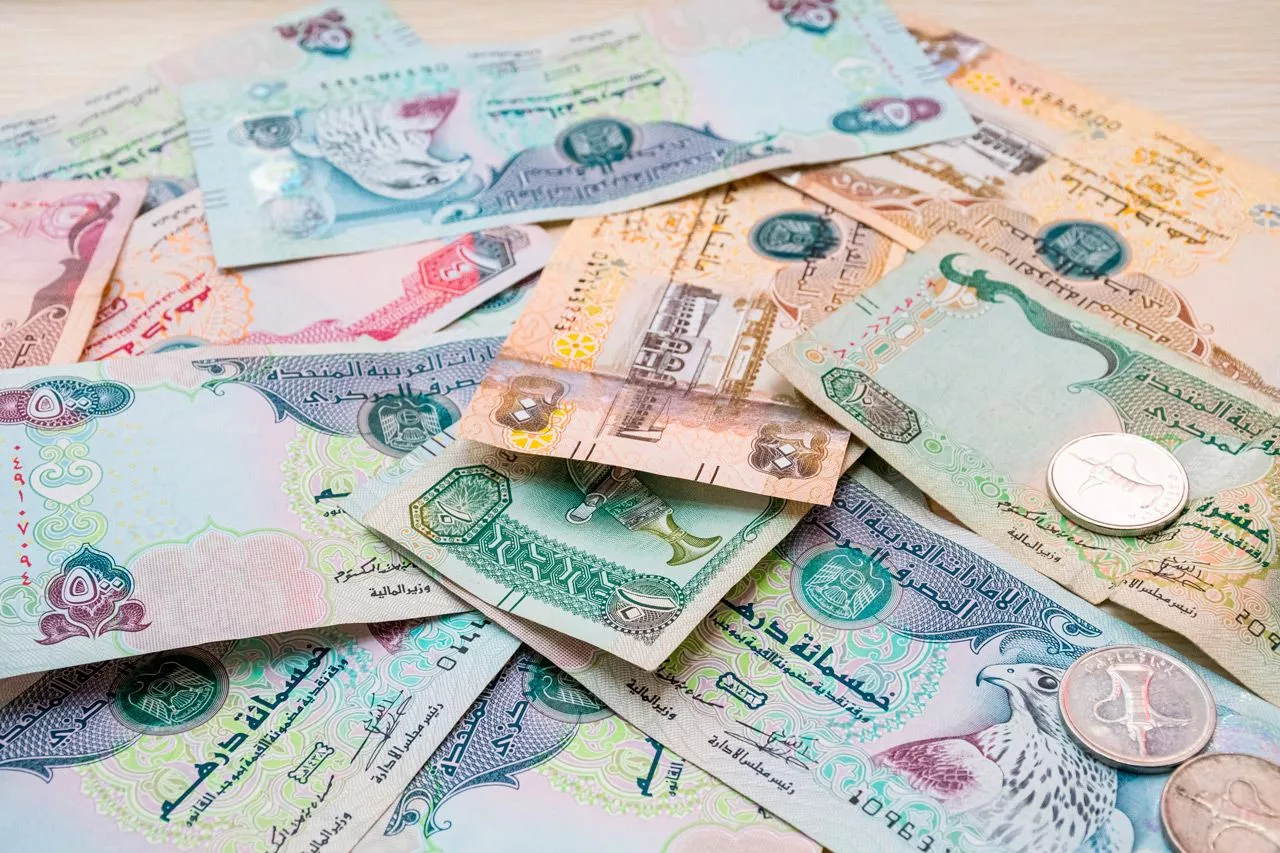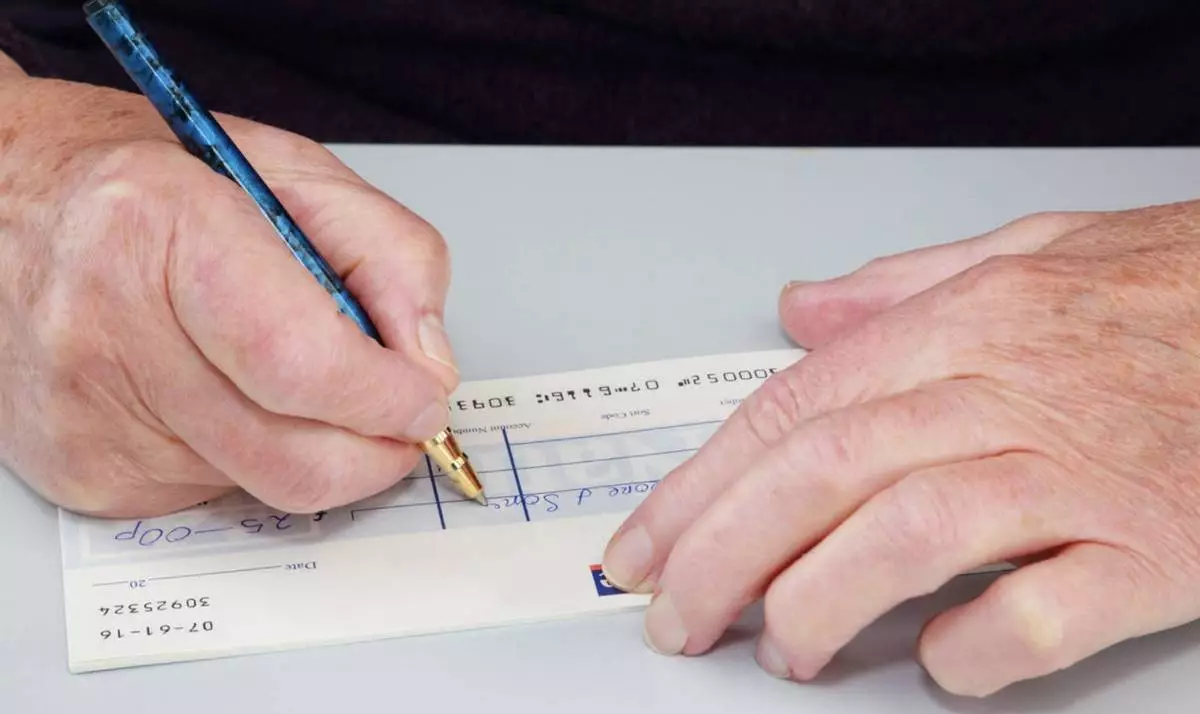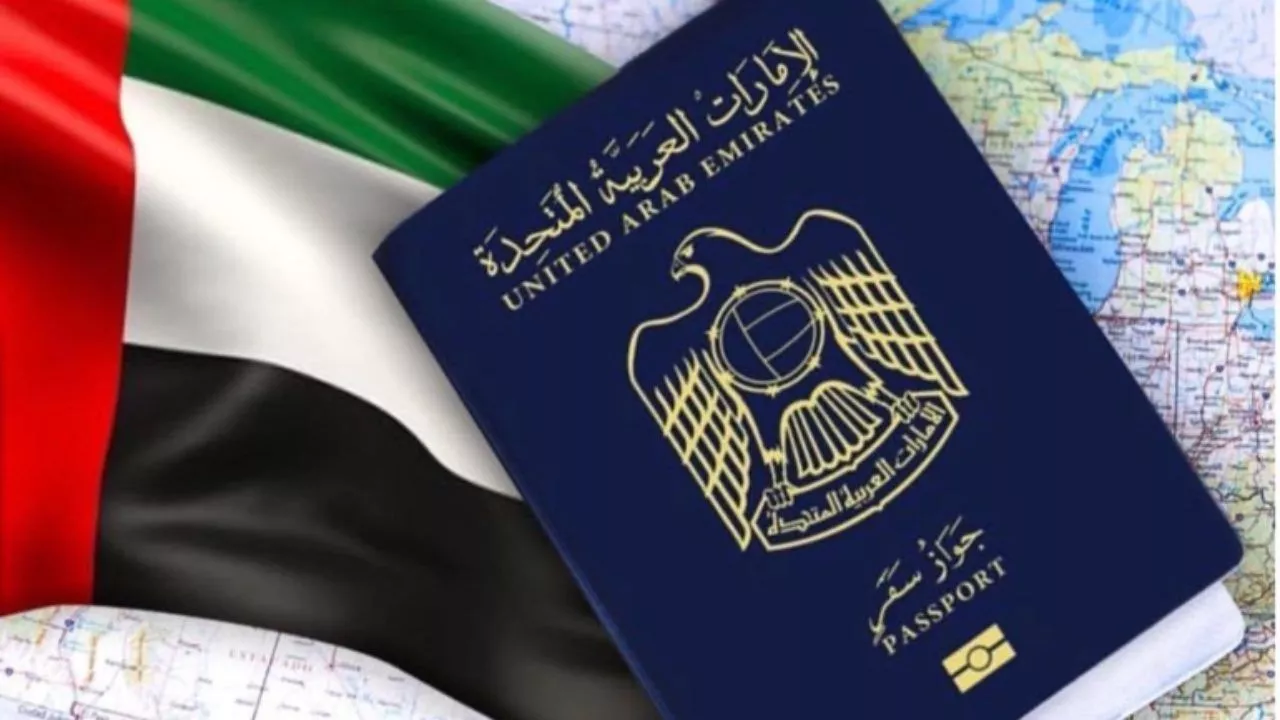Opening a bank account in Dubai for expats

Due to its reputation as a country with minimal taxes, the UAE has become associated with wealth and bank accounts. Banking in the UAE can be attractive for a few reasons: privacy policy, stability and diversification. If you are an expat, managing your finances smartly in a foreign country should be one of your top priorities as many individuals elope to a new country for a better quality of life and a higher salary. It is well known that a UAE residency visa will allow you to open a personal or business account in Dubai. Meanwhile, non-residents can only open a savings account in most cases. In this article, we have gathered the essential information that you should be aware of when opening a bank account in Dubai for both residents and non-residents. Thus, you will be able to avoid the mistakes and difficulties that some may encounter during the initial stages of opening an account, as well as understanding what role is taken by the broker when opening an account.

Types of Personal Bank Accounts in Dubai
Along with the rest of the world, Dubai allows you to open an account for yourself as an individual and use it for personal purposes. It is worth noting that using this type of an account for commercial purposes is absolutely not allowed. For businesses, you will need to establish a company and subsequently open a corporate account. When opening any bank account, it is essential to remember that the card will be in AED, and this is where the bank takes the fees from. So, even if you have a substantial financial sum in your EUR/USD /GBP account but your AED account runs out of money, the bank will not be able to charge the fees. In this case your account may be shut down. On a positive note, the UAE banks have IBANs, meaning that you can easily manage transactions to/from partners in Europe. Simply having a bank account with an IBAN provides efficiency in terms of time and money.
Current Account
One can use current accounts for money transfers or day-to-day transactions. This type of account allows the handling of large volumes of payments and/or receipts systematically. Current accounts in Dubai are in high demand among companies, firms, public enterprises and business individuals. This is due to the fact that these types of customers have a higher amount of monthly transactions. One has to keep in mind that because of the fluidity that a current account offers, the account holder, as a rule, does not earn a high interest on it. Current accounts can be used to transfer wages, and they can be maintained in various currencies including AED, GBP, USD and EUR among many others. Moreover, current accounts have no limit on withdrawals as per the discretion of the financial institution or bank. However, account holders may have to pay cash transaction charges. These fees vary according to the specific bank.
Savings Account
A savings account is a deposit account with a financial institution or a bank in which the account holder can earn a considerable amount on interest rates. However, if you are a non-resident, interest rates do not exceed 1.5%. A savings account is normally opened for saving funds that are not intended for daily or regular expenses. As opposed to a current account, the number of allowed monthly withdrawals may be limited, however this depends on the chosen bank or financial institution. Additionally, the account holder has to maintain a specific average balance every month in the account, otherwise, the account holder could be charged with a penalty fee if they cannot attain the agreed amount. This rule does not apply to zero balance accounts.

Investment Account
Generally, this account offers higher interest rates than current or savings account options. However, access to funds held in the investment may be unavailable or limited during a certain time frame. Therefore, if you need to access your funds on a regular basis, this options may be fairly inconvenient. The opening of an investment account is carried out on the basis of the investment agreement with the bank. The contract term ranges from 12 months and can go up to more than 10 years. According to the agreement, you transfer a specific amount of funds into the investment account opened with the bank within a specific timeframe. Meanwhile, the bank manages your asset portfolio and invests in different financial assets. It is possible to gain an annual profit of 3-7%. The minimum amount of money required to start an investment account varies according to different banks. Some institutions ask for a specific fixed amount at the beginning of every year while others require a transfer of a specific sum of money every month. Due to the investment account belonging to the intra bank category, it will not be displayed in your savings or current account. This is managed only by the bank, which, in turn, at the end of each quarter, sends an account statement to the email of the holder.
Salary Account
In case of a salary account, you will have to ensure that each month your salary goes specifically to this account. Normally, UAE banks open this account on the request of major corporations or companies. It means that when the company has to distribute salaries, the involved bank takes funds from the company account and distributes them to the employees. Of course, each employee has their own account in this case. Before you apply for a salary account, it is advisable to talk to the HR department of your company and check their list of recommended banks. Thus, your salary will take much less time to clear than in other banks not associated with the company where you work. In the case of a salary account, as a rule, there is no need to maintain a minimum deposit. At the same time, one has to keep in mind that there can be an exception to this, as per the discretion of each individual bank. Note: In 2016, a decree issued by the Ministry of Human Resources and Emiratisation, mandated that employees’ salaries be transferred to their bank accounts under the Wages Protection System (WPS). When you receive a new job offer, your company will ask you for your bank account details due to this regulation.
Non-Resident Account
It is important to know that all the banks in the country comply with CRS. In fact, the Central Bank started participating in the automatic exchange of information (AEOI) in 2019. So, if you bank in Dubai as a non-resident, expect your information to be automatically shared with the tax authorities in your home country/country of residence. Additionally, non-residents are drastically limited in the types of accounts and the amount of bank products they can access in the UAE as these restrictions are managed by the Central Bank, so there is no way to negotiate regarding this issue. If you are not planning on obtaining residency in the UAE, then your account opening options will be limited. The reason for this is that even non-resident accounts are designed for individuals who are in the process of obtaining a residency or visa. In addition, there are also several restrictions and limitations that non-residents have to be aware of. For instance, the majority of UAE banks do not allow non-residents to open a checking or current account and obtain a cheque book. Furthermore, sometimes they have restrictive minimum/maximum rules on account balances. It is worth noting that Dubai banks may charge non-resident fees and high penalties if the balance drops below a certain amount.

Which Account to Choose for a UAE Resident?
In general, current accounts are in high demand among UAE residents. This is due to the fact that besides a debit card, a resident has a full right to obtain a credit card and a cheque book. It is worth noting that cheques remain an important method of payment in the UAE. They are essential when it comes to new rental contracts and as a security option for credit cards and loans.
Cheque Books
In 2020, it was announced that new bank clients in the UAE will be issued cheque books with only 10 cheque leafs, compared to 25 leaves previously. The new regulation is applicable to all new individual customers. Non-individual clients will continue to receive larger cheque books depending on their credit record. Furthermore, it is mandatory to do an obligatory background check via the Al Etihad Credit Bureau. Those customers with a poor credit record will face particular challenges when obtaining cheque books and opening a new or additional account.

Opening Bank Account: Step by Step
If you have an Emirates ID card but you do not actually have a local address, the best way to open an account is to go to one of the local banks, such as Emirates Dubai Bank Emirates NBD), First Abu Dhabi Bank, Mashreq Bank and others. Local banks are less strictly controlled by the Central Bank compared to the international institutions. Some of them may require a deposit, particularly, if you want to get a credit card. As for foreign banks such as HSBC, it is much more preferable to have a local address, especially for EEA citizens. Typically, you will need a UAE phone number to receive text messages from the bank in order to use their online services. Furthermore, you will have to stay in Dubai long enough to actually receive a debit card. Note: it is quite common for UAE banks to refuse to open current accounts in the UAE, even for residents. This practice is connected with the fact that the institutions strive to avoid clients from high-risk countries (such as Iran and Korea). Each bank has its own internal ratings on nationalities, which differs from case to case. In this case, it is recommended when opening a bank account, submit your file of documents to several banking institutions at once.

FATCA between the USA and UAE
Since the introduction of the Foreign Account Compliance Act, American citizens can experience major challenges when obtaining banking services from the financial institutions in the UAE. Moreover, after the Emirates signed a Model 1 intergovernmental agreement with the United States in 2015, UAE financial institutions can face up to a 30% penalty on the financial returns if they fail to comply with specific agreements of the FATCA regulations. Banks have to provide information about the US clients to the UAE government, which sends the data to the US Internal Revenue Services. Because of this, a large number of financial providers do not offer their services to US citizens. It is highly recommended to check if the chosen UAE bank is a registered Participated Foreign Financial Institution under FATCA. Otherwise, the bank can simply refuse to accept a US citizen as a client, solely based on their nationality.
Assistance of a Broker
If this is your first time opening a bank account in Dubai and you are not familiar with UAE law, it is better to use the help of a broker who will offer the following services to facilitate the entire process of account opening:
<ul><li>Arrangement of a meeting with the trusted bank manager interested in long-term cooperation.</li><li>Assistance in preparation, collection and verification of all necessary documentation to avoid problems at the bank.</li><li>How to answer the questions of a bank representative.</li><li>Translation if your English is not fluent.</li><li>Courier delivery of cheque books and bank cards among other banking documents.</li></ul>
Requirements and Documents
Once you decide to proceed with the account opening, it is essential for you to know the requirements for opening an account. At the same time, you have to keep in mind that they can differ from bank to bank. For instance, while same banks may require you to maintain a minimum balance from AED 3,000 (USD 820) in the account, many waive this requirement if a monthly salary is transferred.
UAE Residents
Besides filling in a detailed account opening form, UAE residents are required to present the following papers:
<ul><li>Residency visa plus copies.</li><li>Emirates ID card.</li><li>Original passport (with UAE entry stamp) plus copies.</li><li>Passport photo,</li></ul>
Note: you can present a registration form as proof that your visa documentation is under process. Moreover, depending on the account type, you may also be asked to provide the following details:
<ul><li>A no-objection certificate from a sponsor.</li><li>Salary certificate for salary-transfer accounts.</li><li>Copy of your labour contract or appointment letter.</li></ul>

Non-UAE Residents
There are three crucial points to note about non-resident bank accounts. Firstly, the majority of UAE banks require non-residents to hold a monthly average balance of AED 100,700 (USD 27,400). Although it may seem excessive, the federal government has decided to impose strict rules on its financial system. Some banks also require all non-resident customers to purchase banking products for a period of one to ten years. Secondly, an applicant’s presence is absolutely mandatory in Dubai/UAE. And finally, non-residents have to provide a three or six months’ personal bank statement where regular monthly transactions of AED 51,500 (USD 14,000) can be clearly identified. The documents needed may vary depending on whether you are a former resident or a tourist. Below is a comprehensive list of documents, collected from various Dubai banks:
<ul><li>Original and passport copy with UAE entry page.</li><li>Proof of residency (copy of phone, electricity bills or banks statements from your home country).</li><li>Original bank reference letter from the personal/company bank account of the applicant from the country of origin or anywhere else around the globe.</li><li>Original copies of the latest three or six months personal bank statements from the country of origin or anywhere else around the globe.</li><li>A letter of introduction from an existing bank customer.</li><li>Information on the source of incoming funds.</li></ul>
Note: If you are from a country where the official language is not English, it is recommended you take care of the transfer in advance of handing in all your documents to the bank. Moreover, you have to be aware of a Know Your Customer system policy for all banks in the UAE. According to this, bank tellers or other representatives may ask you a couple of questions about transactions before or after opening the account.
Procedure
Now that you have all the required papers in hand here is your step-by-step guide on opening a bank account in Dubai.
<ol><li>Once you have chosen your bank, call them to double-check the opening hours and get the information on the necessary documents you need to present. As we have mentioned before, requirements may vary in different banks.</li><li>Visit the preferred bank and set up an appointment with a bank representative who will guide you through the whole process and help you with the application form. Keep in mind that most banks in Dubai close in the afternoon, so consider a morning visit.</li><li>In the case of non-residents, the waiting period of opening an account ranges from one to two weeks. This is due to the fact that all documents have to be verified and checked across international security databases. Citizens of high-risk countries (Iran, Korea) may have a longer authorization process. Residents, it can take up to two working days.</li><li>After you open your account, you will obtain a debit card, as well as a cheque book in case of residency.</li></ol>
Note: many banks are now offering their customers with UAE residency an opportunity to upload their documents online. Once this is done, you can obtain a reference number and will be able to access the account as soon as the application approval is confirmed. If your monthly salary is below AED 5,000 (USD 1,360) or you do not have proof of income, you can open an account with digital banks including Liv, Al Hilal Bank and ADCB Hayak, among others. All you have to do is to download the bank app, upload the required documents and scan your Emirates ID. Afterwards, you will receive a welcome kit with a debit card delivered by a courier. This format of account opening is more common among self-employed residents or freelancers, as it is faster.

Questions to Consider
During a bank meeting, it is advisable to enquire about the following issues:
<ol><li>What is the minimum balance required?</li><li>When and why do you have to pay penalties and fees?</li><li>Are there any salary transfer requirements?</li><li>How many withdrawals are allowed monthly?</li><li>What fees may apply to new ATM and debit cards or cheque books?</li><li>What is the amount of transactions you can transfer to your preferred country?</li><li>Can the bank freeze your account if you lose your job but have an outstanding loan?</li></ol>
Banking Fees
It is essential to be aware of possible banking charges and fees you may encounter when opening an account. One has to keep in mind that the amounts may vary from bank to bank. UAE banks do not charge monthly maintenance fees, instead you have to pay for internet banking services. The costs may vary in different financial institutions.
<ul><li>Opening account – free (for residents and non-residents).</li><li>General consultation on bank account opening – AED 1,850 (USD 504)/hour.</li><li>Assistance in bank account opening – AED 1,850 (USD 504)/hour.</li><li>Monthly minimum balance penalty – AED 25 (USD 7).</li><li>Foreign exchange – 1-3% of the transaction amount.</li><li>International transfers – from 0-AED 100 (USD 28) (not incl. VAT).</li><li>Using an ATM of another local bank – AED 2 (USD 0.5).</li></ul>
Many banks in Dubai charge around AED 50 for initiating a funds transfer. For example, Emirates NBD charges AED 35 for each new standing instruction. When setting up automatic payments, it is even more important to keep track of the minimum account balance, as the fee for insufficient funds can be exorbitant. Note: If you make purchases from abroad or in another currency, you may be charged a Visa or MasterCard conversion fee in addition to the aforementioned currency exchange fee.

About Company Account
The first thing you have to know is that business accounts and wealth management accounts are harder to acquire, as opposed to personal accounts. The possibility of opening a company for a non-resident legal entity may be considered on specific terms. You will have to open an account with a fixed deposit of AED 18,365,000 (USD 5,000,000). Furthermore, you will have to establish capital worth AED 73,458,000 (USD 20,000,000) under the condition of freezing a certain amount for the period of using the bank account. As opposed to an offshore bank account, you will be provided with a cheque book. It is also worth noting that in case of both offshore and company accounts, the bank will do a background check on the counterparties. If they are on the black list or a connection with Iran or Korea is found, the application may be denied.
About Offshore Bank Account
When opening an offshore account in the UAE, keep in mind that your data, regardless of your citizenship, will be checked thoroughly. You will also have to legalize all incorporation documents of your foreign company at the UAE embassy in the country of origin and in the Ministry of Foreign Affairs in Dubai. Moreover, you have to be physically present when signing the papers. Otherwise, it is not necessary to stay in the Emirate. The rest of the procedure can be entrusted to a registered broker with an appropriate license. You also need to know that you will only receive a debit card, as cheque books and credit cards are not available in case of an offshore bank account.
Rejection of Opening a Bank Account and What to Do
Practically every bank in the UAE has its own specific requirements towards a profile of a potential client, activities and minimum transactions. A financial institution may reject your application if you do not provide documents confirming your employment status, identity and the nature of your occupation. Besides the previously-mentioned list of restricted persons, other reasons include:
<ul><li>Blocked account in another bank due to suspicious activity.</li><li>Inability to confirm a source of funds.</li><li>Non-compliance with minimum balance requirements.</li><li>A client is on a list of restricted persons or countries.</li></ul>
Moreover, UAE banks may search for information on the potential client online. Any negative data found on the internet regarding a customer significantly lowers the chances of the application being approved at the bank. In the case of refusal, it is prohibited by law to inform of the exact reason. Preparation in advance is the key when opening a bank account in Dubai. It is recommended to double-check all the required documents and make sure that the data provided is accurate and complete. In general, the more information you provide, the higher chances your application has of being approved. Answers to the queries of a bank representative have to be honest and clear. Confidentiality of personal data is guaranteed by law.

How to Close a Bank Account
Closing a bank account in the UAE is pretty easy, provided you have cleared all your dues with the bank. As a rule, the closing procedure steps are pretty standard in all UAE banks. However, it is advisable to contact the customer service of your bank and enquire on any specific requirements. It is essential to know that physical presence when closing an account is obligatory in most of the banks. Closure of a bank account in the UAE takes from 3 to 5 days in total. The following documents have to be provided:
<ul><li>Unused cheques and a cheque book.</li><li>Debit and credit card of the account.</li><li>Copy photo ID.</li></ul>
Best Banks for Opening Bank Account
Banks in the UAE are regulated and monitored by the Central Bank of the United Arab Emirates. Along with the Islamic banks which are growing rapidly, there are 22 local banks and 28 foreign banks in the country. Larger banks dominate the country’s banking industry, with the five biggest banks accounting for about 60% of the sector’s assets. Despite the recent economic challenges and oil price fluctuation, reducing investors’ confidence, the below-mentioned banks have still recorded an impeccable growth in terms of assets and net profits. Best Banks for Residents:
<ul><li><strong>Dubai Islamic Bank (DIB)</strong> – was founded in 1975 by Hajj Saeed bin Ahmed Al Lutah and is the first major Islamic bank in the UAE to incorporate Islamic principles in all its practices. The bank operates through segments such as consumer and corporate lending, real estate development and treasury, among others. DIB has about 2M customers and 66 branches across the UAE.</li><li><strong>Emirates NBD</strong> is the second-largest banking group by assets in the UAE, headquartered in Dubai. The bank currently operates 915 branches, 4,029 ATMs and SDMs in the UAE and abroad. The bank’s activities are carried out through business segments of different nature. These include Retail and Wholesale Banking and Wealth</li><li><strong>Management, Islamic Banking (IB)</strong>, International Business, and Information Technology and Operations.<br> Mashreq Bank is one of the oldest banks in the UAE with the year of its foundation in 1967. As a joint-stock company and associate of HSBC Group, it provides retail and commercial banking, brokerage and asset management services. The bank has approximately 45 domestic and 20 international branches and is also present in Egypt, Qatar, Kuwait and Bahrain.</li></ul>
The following banks are recommended for non-residents:
<ul><li>First Abu Dhabi Bank (FAB). Minimum monthly balance requirement is AED 3,000 (USD 820). Meanwhile, the daily ATM withdrawal limit is AED 10,000 (USD 2,722) with a standard debit card.</li><li>Mashreq Bank. This bank provides an opportunity for non-residents to open a current account, besides a regular savings account. In addition to a valid passport, a client will require a 2-month bank statement from the country of residence.</li></ul>
Future of UAE Banking
In July 2021, the UAE Central Bank announced a planned launch of its own digital currency, GovCoin. This initiative comes as a part of a broader 2023 – 2026 strategy aimed at helping the UAE Central Bank grow into one of the largest in the world. According to a bank official, GovCoin is expected to become a key factor for future-proofing the financial and technical industry of the country, ensuring the bank’s innovations to keep up with the up-to-date technologies and remain competitive in a digitalized world. Speaking of digitalization, the first digital bank of the UAE, Al Maryah Community Bank, launched an app in July. The new application allows the opening of current and savings accounts in less than 5 minutes. The focus of Al Maryah Community Bank is on supporting individuals and small businesses. Customers have an opportunity to experience multiple banking services based on AI-powered technology integrated with the UAE Government’s Smart Services. There are still more digital banks to come to the UAE. The list includes a new-all digital bank; Zand, which has been awaiting final approval, as of July 2021 and a digital-only bank in Abu Dhabi. With the license acquired from First Abu Dhabi Bank, its initial capitalization amounts to AED 2,000,000,000 (USD 544,530,000).
Summary
<ol><li>As opposed to a savings account, a current account is suitable for multiple day-to-day transactions.</li><li>The Central Bank shares all the tax information of non-residents with their country of origin.</li><li>Non-residents are not allowed to have a cheque book in the UAE.</li><li>Those with a UAE residency visa can use online services to open an account without having to visit the bank.</li><li>When opening an offshore bank account, the physical presence of a client is a must.</li></ol>


